(新课标)Unit 6 Section A 2a-2d 课件 +内嵌音频 (新目标七年级下册Unit 6 I am watching TV.)
文档属性
| 名称 | (新课标)Unit 6 Section A 2a-2d 课件 +内嵌音频 (新目标七年级下册Unit 6 I am watching TV.) | 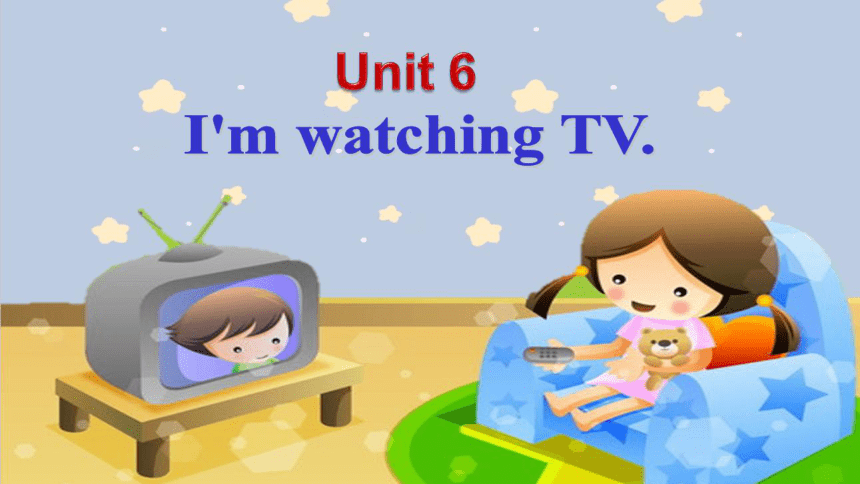 | |
| 格式 | pptx | ||
| 文件大小 | 19.6MB | ||
| 资源类型 | 试卷 | ||
| 版本资源 | 人教新目标(Go for it)版 | ||
| 科目 | 英语 | ||
| 更新时间 | 2024-04-13 11:30:44 | ||
图片预览

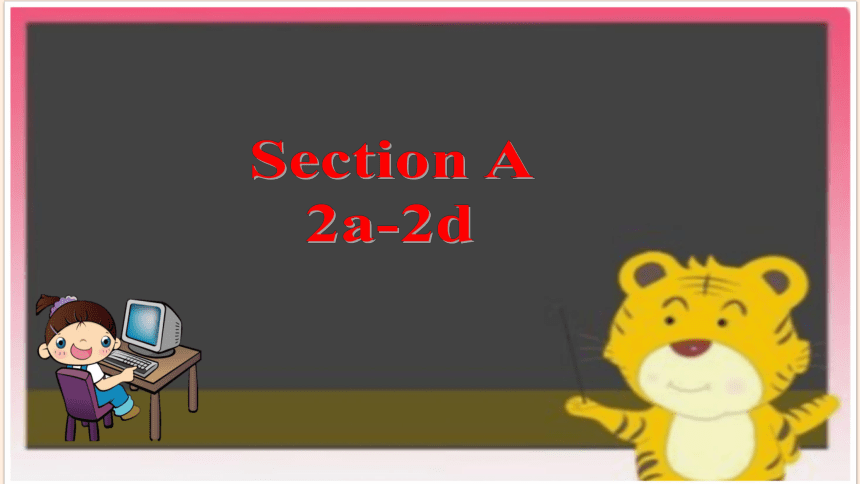
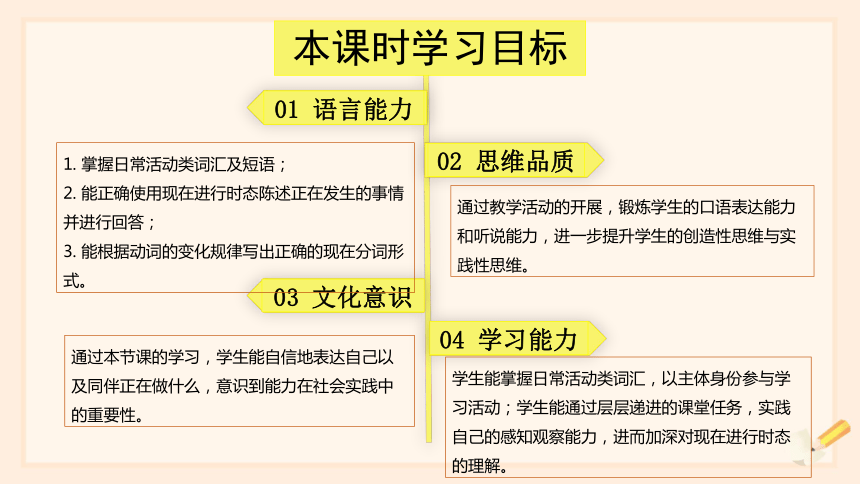
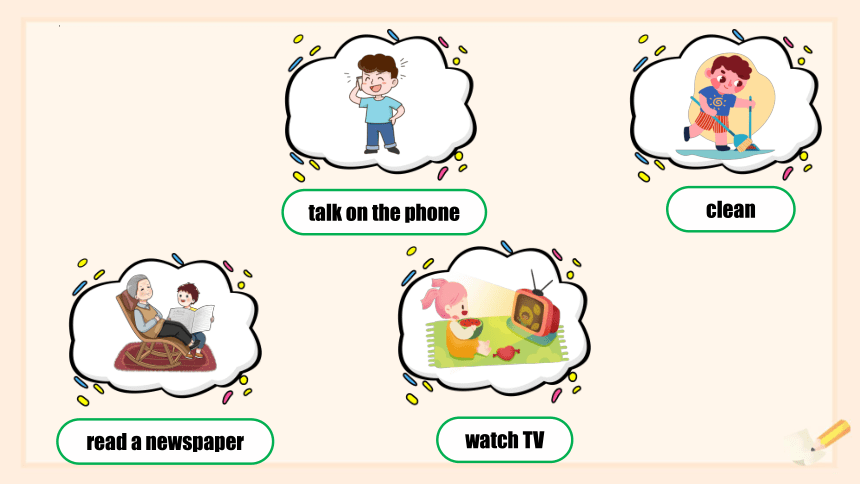
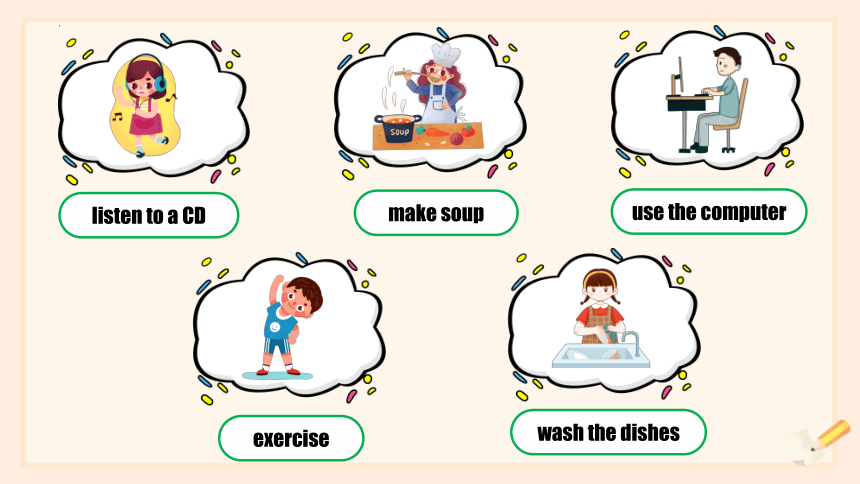
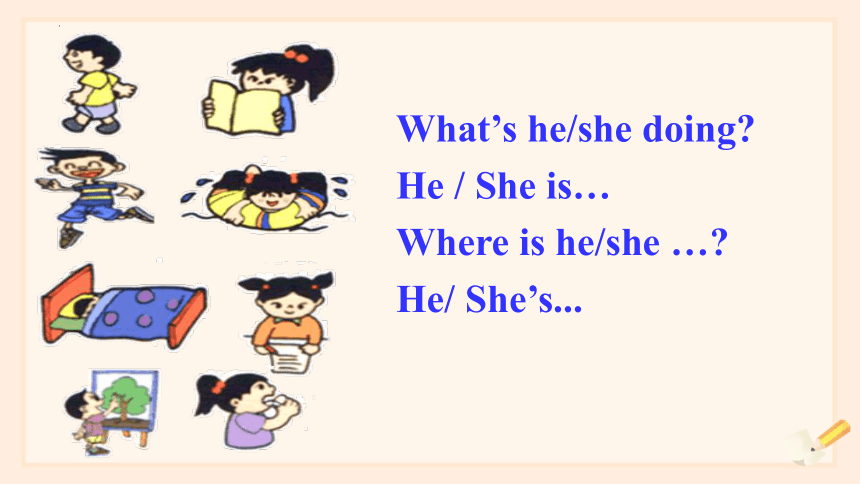
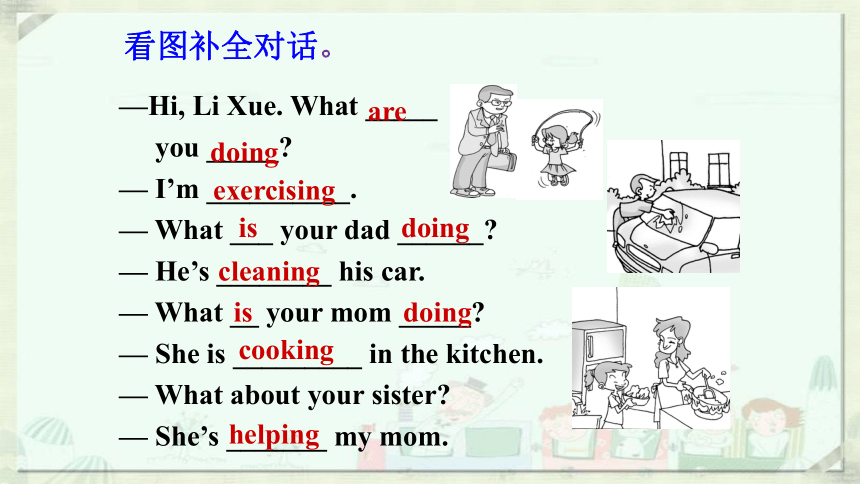
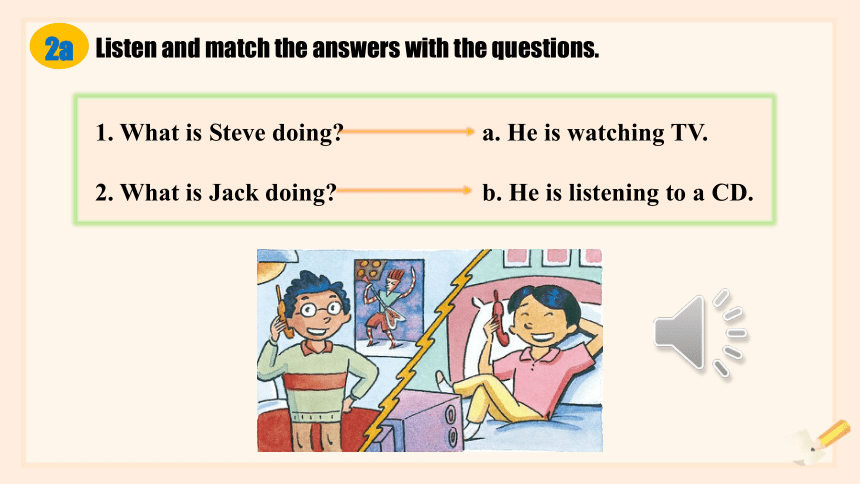
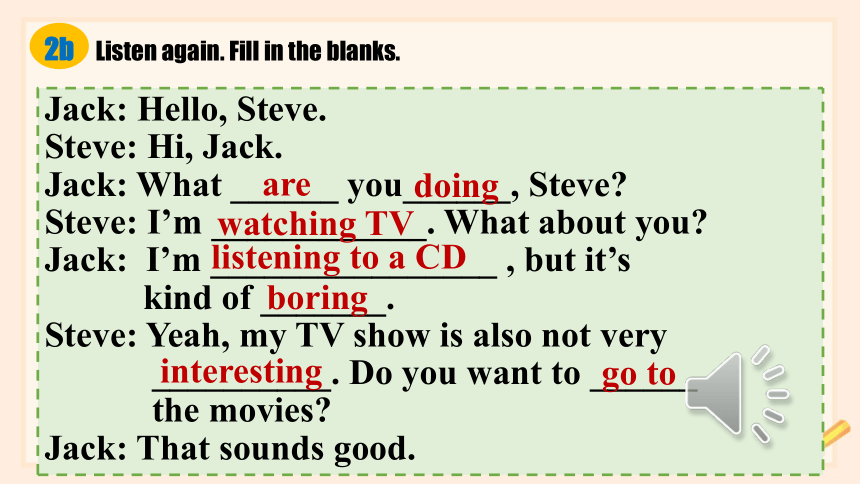
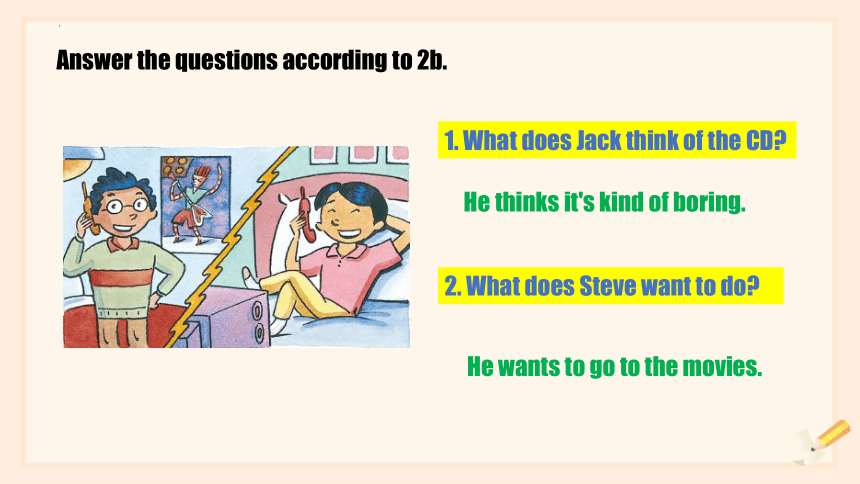
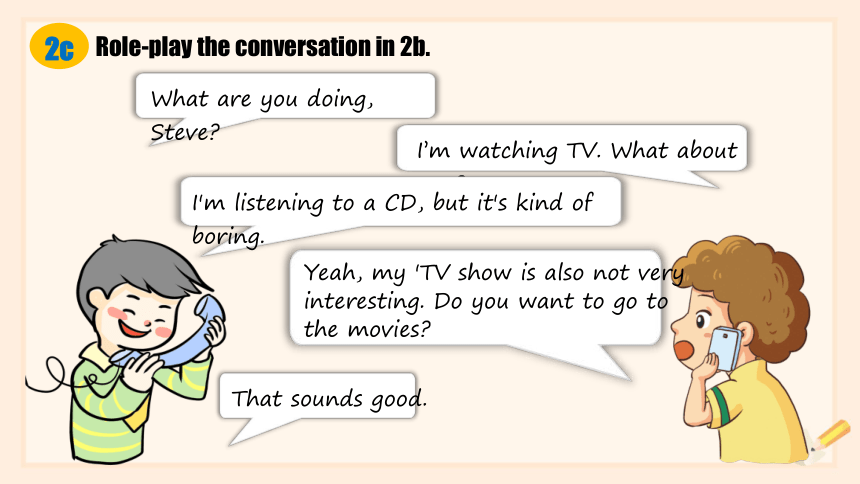
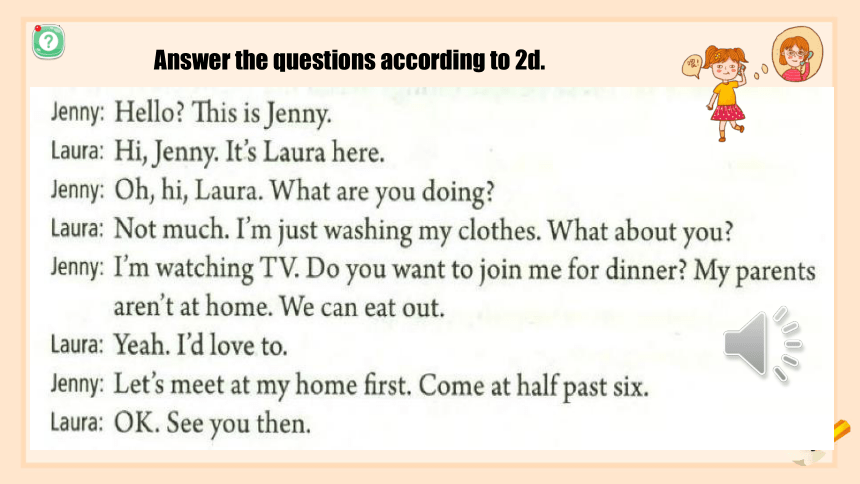
文档简介
(共33张PPT)
Section A
2a-2d
本课时学习目标
01 语言能力
02 思维品质
03 文化意识
04 学习能力
1. 掌握日常活动类词汇及短语;
2. 能正确使用现在进行时态陈述正在发生的事情并进行回答;
3. 能根据动词的变化规律写出正确的现在分词形式。
通过教学活动的开展,锻炼学生的口语表达能力和听说能力,进一步提升学生的创造性思维与实践性思维。
通过本节课的学习,学生能自信地表达自己以及同伴正在做什么,意识到能力在社会实践中的重要性。
学生能掌握日常活动类词汇,以主体身份参与学习活动;学生能通过层层递进的课堂任务,实践自己的感知观察能力,进而加深对现在进行时态的理解。
talk on the phone
clean
read a newspaper
watch TV
listen to a CD
make soup
exercise
wash the dishes
use the computer
What’s he/she doing
He / She is…
Where is he/she …
He/ She’s...
—Hi, Li Xue. What _____
you _____
— I’m __________.
— What ___ your dad ______
— He’s ________ his car.
— What __ your mom _____
— She is _________ in the kitchen.
— What about your sister
— She’s _______ my mom.
are
doing
exercising
看图补全对话。
is doing
cleaning
is doing
cooking
helping
2a
Listen and match the answers with the questions.
1. What is Steve doing a. He is watching TV.
2. What is Jack doing b. He is listening to a CD.
2b
Listen again. Fill in the blanks.
Jack: Hello, Steve.
Steve: Hi, Jack.
Jack: What ______ you______, Steve
Steve: I’m ____________. What about you
Jack: I’m ________________ , but it’s
kind of _______.
Steve: Yeah, my TV show is also not very
__________. Do you want to ______
the movies
Jack: That sounds good.
are
doing
watching TV
listening to a CD
boring
interesting
go to
Answer the questions according to 2b.
1. What does Jack think of the CD
2. What does Steve want to do
He thinks it's kind of boring.
He wants to go to the movies.
2c
Role-play the conversation in 2b.
What are you doing, Steve
I’m watching TV. What about you
I'm listening to a CD, but it's kind of boring.
Yeah, my 'TV show is also not very interesting. Do you want to go to the movies
That sounds good.
Answer the questions according to 2d.
Answer the questions according to 2d.
1. What's Laura doing
2. What's Jenny doing
3. What do they want to do
4. What time are they meeting
Jenny: Hello This is Jenny.
Laura: Hi, Jenny. It’s Laura here.
Jenny: Oh, hi, Laura. What are you doing
Laura: Not much. I’m just washing my clothes. What about you
Jenny: I’m watching TV. Do you want to join me for dinner My parents aren’t
at home. We can eat out.
Laura: Yeah. I’d love to.
Jenny: Let’s meet at my home e at half past six.
Laura: OK. See you then.
2d
Role-play the conversation.
1. What's Laura doing
She is washing her clothes.
just 是副词,意为“只是,恰好,正要。”
Jenny: Hello This is Jenny.
Laura: Hi, Jenny. It’s Laura here.
Jenny: Oh, hi, Laura. What are you doing
Laura: Not much. I’m just washing my clothes. What about you
Jenny: I’m watching TV. Do you want to join me for dinner My parents aren’t
at home. We can eat out.
Laura: Yeah. I’d love to.
Jenny: Let’s meet at my home e at half past six.
Laura: OK. See you then.
2d
Role-play the conversation.
2. What's Jenny doing
She is watching TV.
2d
Role-play the conversation.
3. What do they want to do
They want to eat out.
eat out
Jenny: Hello This is Jenny.
Laura: Hi, Jenny. It’s Laura here.
Jenny: Oh, hi, Laura. What are you doing
Laura: Not much. I’m just washing my clothes. What about you
Jenny: I’m watching TV. Do you want to join me for dinner My parents aren’t
at home. We can eat out.
Laura: Yeah. I’d love to.
Jenny: Let’s meet at my home e at half past six.
Laura: OK. See you then.
出去吃饭
join sb. for dinner
和某人一起吃晚饭
Jenny: Hello This is Jenny.
Laura: Hi, Jenny. It’s Laura here.
Jenny: Oh, hi, Laura. What are you doing
Laura: Not much. I’m just washing my clothes. What about you
Jenny: I’m watching TV. Do you want to join me for dinner My parents aren’t
at home. We can eat out.
Laura: Yeah. I’d love to.
Jenny: Let’s meet at my home e at half past six.
Laura: OK. See you then.
2d
Role-play the conversation.
4. What time are they meeting
They are meeting at half past six.
Jenny: Hello This is Jenny.
Laura: Hi, Jenny. It’s Laura here.
Jenny: Oh, hi, Laura. What are you doing
Laura: Not much. I’m just washing my clothes. What about you
Jenny: I’m watching TV. Do you want to join me for dinner My parents aren’t
at home. We can eat out.
Laura: Yeah. I’d love to.
Jenny: Let’s meet at my home e at half past six.
Laura: OK. See you then.
Listen to the tape and fill in the missing parts.
2d Role-play the conversation.
现在进行时态
1. 定义:表示现在正在进行的动作。
2. 构成:am( is, are) + 动词的现在分词
The Present Continuous Tense
动词现在分词的构成规律
1) 一般情况下,在动词原形后直接加-ing。如:
work—working do—doing play—playing
2) 以不发音的字母e结尾的动词,去掉e,再加-ing. 如:
dance—dancing come—coming
3) 重读闭音节单词,如果末尾只有一个辅音字母,则双写这一字母,再加-ing。如:
get—getting shop—shopping
run—running swim—swimming
Do you know how to get “ -ing” Let’s try !
do ______ watch ______
clean ______ read______
eat______ play________
dance________ write ________
run _________ swim _________
watching
doing
cleaning
playing
writing
reading
running
swimming
eating
dancing
Language points
1. Not much是用做回答的交际套语,还可说成 Nothing much, 相当于汉语“不忙什么;没什么事”,表示自己有空。例如:
A:What are you doing this evening
你今晚要做什么事?
B:Well, nothing much.
嗯,没什么事。
2. join somebody for something 表示“与某人一起做某事;参与或加入到某人的行列中一起做某事”。例如:
Would you come and join us for a cup of coffee We need to talk to you.
你来跟我们喝杯咖啡好吗? 我们要跟你谈一谈。
3. I’d love to.
我很乐意。
1) 作为一个交际应答套语,I’d love to 经常用于礼貌地接受他人邀请,还可说成I’d like to, 但语气较前者稍弱。例如:
A:Would you like to come with us to the show
你愿意跟我们一起去看表演吗?
B:Thanks. I’d like to.
多谢了,我可以的。
2) 当婉言拒绝他人邀请时,英语多用I’d love to, but … 或Sorry, I’m afraid I can’t because …等。例如:
A:I’m going to town. Would you like to join me
我进城去,你想跟我一同去吗?
B:Sorry, I’m afraid I can’t because I still have lots of homework to do.
真抱歉,恐怕我去不成,我还有好多作业要做。
1
-Jenny, what are you doing
-I’m watching TV.
现在进行时:表示说话瞬间正在进行或发生的动作。
现在进行时的构成: am / is / are +
现在进行时:
表示现在进行的动作或存在的状态,此动作始于过去,发生在现在,并且可能继续进行下去。
现在进行时的构成:
am / is / are + v.-ing
are doing
watching TV
now
past
2
I'm listening to a CD, but it's kind of boring.
现在进行时:表示说话瞬间正在进行或发生
The movie is kind of scary. 这部电影有点吓人。
kind of 有点儿,侧重指“品质、性质”,后面加形容词
a kind of 一种,后面加名词
It’s kind of late to begin now. 现在开始有点晚了。
This is a new kind of car. 这是一种新式的汽车。
A giant panda is a kind of bear. 大熊猫属熊的一种。
1
1. My mother washes clothes for us every week. Look! She _____ clothes now.
A. washes B. is washing C. are washing D. washing
—Look out of the window! It ______.
—Yes. What a heavy snow! You know it _____ quite often here in winter.
A. is snowing; snows B. snows; is snowing
C. is snowing; is snowing D. snows; snows
2
—Tom, what's your dad doing
— He _______ my bike.
A. repairs B. will repair C. repaired D. is repairing
3
Exercise
单项选择。
1. What ______ you ________ (do)
2. I ____________ (sing) an English song.
3. What _____ she _________ (drink)
4. He _________ (drive) a car.
5. -_____ you _______ (fly) a kite -Yes, _______.
6. ____ she ________ (sit) in the boat
7. ______ you ________ (ask) questions
8. They ___________ (play) basketball now.
are playing
doing
are
am singing
is
drinking
is driving
Are
flying
I am
Is
sitting
Are
asking
Exercise
用现在进行时完成下列句子:
根据汉语意思完成下列句子翻译。
1. 咱们出去吃饭吧。
Let's ________.
2. 吉姆想和我们一起去吃午饭。
Jim wants to _____ us _____lunch.
3. 我觉得这部电影有点儿无聊。
I think the movie is ________________.
4. 今天晚上你愿意和我一起去看电影吗?
Would you like to _________________ with me this evening
5. 我奶奶从来不看电视。
My grandma never ______________.
eat out
join
for
kind of boring
go to the movies
watches TV
Remember all the new words that we learned.
Finish the exercises. (A)
2. Make sentences with the structure of the Present Continuous Tense. (B)
3. Talk about one photo about what they are doing. (C)
Section A
2a-2d
本课时学习目标
01 语言能力
02 思维品质
03 文化意识
04 学习能力
1. 掌握日常活动类词汇及短语;
2. 能正确使用现在进行时态陈述正在发生的事情并进行回答;
3. 能根据动词的变化规律写出正确的现在分词形式。
通过教学活动的开展,锻炼学生的口语表达能力和听说能力,进一步提升学生的创造性思维与实践性思维。
通过本节课的学习,学生能自信地表达自己以及同伴正在做什么,意识到能力在社会实践中的重要性。
学生能掌握日常活动类词汇,以主体身份参与学习活动;学生能通过层层递进的课堂任务,实践自己的感知观察能力,进而加深对现在进行时态的理解。
talk on the phone
clean
read a newspaper
watch TV
listen to a CD
make soup
exercise
wash the dishes
use the computer
What’s he/she doing
He / She is…
Where is he/she …
He/ She’s...
—Hi, Li Xue. What _____
you _____
— I’m __________.
— What ___ your dad ______
— He’s ________ his car.
— What __ your mom _____
— She is _________ in the kitchen.
— What about your sister
— She’s _______ my mom.
are
doing
exercising
看图补全对话。
is doing
cleaning
is doing
cooking
helping
2a
Listen and match the answers with the questions.
1. What is Steve doing a. He is watching TV.
2. What is Jack doing b. He is listening to a CD.
2b
Listen again. Fill in the blanks.
Jack: Hello, Steve.
Steve: Hi, Jack.
Jack: What ______ you______, Steve
Steve: I’m ____________. What about you
Jack: I’m ________________ , but it’s
kind of _______.
Steve: Yeah, my TV show is also not very
__________. Do you want to ______
the movies
Jack: That sounds good.
are
doing
watching TV
listening to a CD
boring
interesting
go to
Answer the questions according to 2b.
1. What does Jack think of the CD
2. What does Steve want to do
He thinks it's kind of boring.
He wants to go to the movies.
2c
Role-play the conversation in 2b.
What are you doing, Steve
I’m watching TV. What about you
I'm listening to a CD, but it's kind of boring.
Yeah, my 'TV show is also not very interesting. Do you want to go to the movies
That sounds good.
Answer the questions according to 2d.
Answer the questions according to 2d.
1. What's Laura doing
2. What's Jenny doing
3. What do they want to do
4. What time are they meeting
Jenny: Hello This is Jenny.
Laura: Hi, Jenny. It’s Laura here.
Jenny: Oh, hi, Laura. What are you doing
Laura: Not much. I’m just washing my clothes. What about you
Jenny: I’m watching TV. Do you want to join me for dinner My parents aren’t
at home. We can eat out.
Laura: Yeah. I’d love to.
Jenny: Let’s meet at my home e at half past six.
Laura: OK. See you then.
2d
Role-play the conversation.
1. What's Laura doing
She is washing her clothes.
just 是副词,意为“只是,恰好,正要。”
Jenny: Hello This is Jenny.
Laura: Hi, Jenny. It’s Laura here.
Jenny: Oh, hi, Laura. What are you doing
Laura: Not much. I’m just washing my clothes. What about you
Jenny: I’m watching TV. Do you want to join me for dinner My parents aren’t
at home. We can eat out.
Laura: Yeah. I’d love to.
Jenny: Let’s meet at my home e at half past six.
Laura: OK. See you then.
2d
Role-play the conversation.
2. What's Jenny doing
She is watching TV.
2d
Role-play the conversation.
3. What do they want to do
They want to eat out.
eat out
Jenny: Hello This is Jenny.
Laura: Hi, Jenny. It’s Laura here.
Jenny: Oh, hi, Laura. What are you doing
Laura: Not much. I’m just washing my clothes. What about you
Jenny: I’m watching TV. Do you want to join me for dinner My parents aren’t
at home. We can eat out.
Laura: Yeah. I’d love to.
Jenny: Let’s meet at my home e at half past six.
Laura: OK. See you then.
出去吃饭
join sb. for dinner
和某人一起吃晚饭
Jenny: Hello This is Jenny.
Laura: Hi, Jenny. It’s Laura here.
Jenny: Oh, hi, Laura. What are you doing
Laura: Not much. I’m just washing my clothes. What about you
Jenny: I’m watching TV. Do you want to join me for dinner My parents aren’t
at home. We can eat out.
Laura: Yeah. I’d love to.
Jenny: Let’s meet at my home e at half past six.
Laura: OK. See you then.
2d
Role-play the conversation.
4. What time are they meeting
They are meeting at half past six.
Jenny: Hello This is Jenny.
Laura: Hi, Jenny. It’s Laura here.
Jenny: Oh, hi, Laura. What are you doing
Laura: Not much. I’m just washing my clothes. What about you
Jenny: I’m watching TV. Do you want to join me for dinner My parents aren’t
at home. We can eat out.
Laura: Yeah. I’d love to.
Jenny: Let’s meet at my home e at half past six.
Laura: OK. See you then.
Listen to the tape and fill in the missing parts.
2d Role-play the conversation.
现在进行时态
1. 定义:表示现在正在进行的动作。
2. 构成:am( is, are) + 动词的现在分词
The Present Continuous Tense
动词现在分词的构成规律
1) 一般情况下,在动词原形后直接加-ing。如:
work—working do—doing play—playing
2) 以不发音的字母e结尾的动词,去掉e,再加-ing. 如:
dance—dancing come—coming
3) 重读闭音节单词,如果末尾只有一个辅音字母,则双写这一字母,再加-ing。如:
get—getting shop—shopping
run—running swim—swimming
Do you know how to get “ -ing” Let’s try !
do ______ watch ______
clean ______ read______
eat______ play________
dance________ write ________
run _________ swim _________
watching
doing
cleaning
playing
writing
reading
running
swimming
eating
dancing
Language points
1. Not much是用做回答的交际套语,还可说成 Nothing much, 相当于汉语“不忙什么;没什么事”,表示自己有空。例如:
A:What are you doing this evening
你今晚要做什么事?
B:Well, nothing much.
嗯,没什么事。
2. join somebody for something 表示“与某人一起做某事;参与或加入到某人的行列中一起做某事”。例如:
Would you come and join us for a cup of coffee We need to talk to you.
你来跟我们喝杯咖啡好吗? 我们要跟你谈一谈。
3. I’d love to.
我很乐意。
1) 作为一个交际应答套语,I’d love to 经常用于礼貌地接受他人邀请,还可说成I’d like to, 但语气较前者稍弱。例如:
A:Would you like to come with us to the show
你愿意跟我们一起去看表演吗?
B:Thanks. I’d like to.
多谢了,我可以的。
2) 当婉言拒绝他人邀请时,英语多用I’d love to, but … 或Sorry, I’m afraid I can’t because …等。例如:
A:I’m going to town. Would you like to join me
我进城去,你想跟我一同去吗?
B:Sorry, I’m afraid I can’t because I still have lots of homework to do.
真抱歉,恐怕我去不成,我还有好多作业要做。
1
-Jenny, what are you doing
-I’m watching TV.
现在进行时:表示说话瞬间正在进行或发生的动作。
现在进行时的构成: am / is / are +
现在进行时:
表示现在进行的动作或存在的状态,此动作始于过去,发生在现在,并且可能继续进行下去。
现在进行时的构成:
am / is / are + v.-ing
are doing
watching TV
now
past
2
I'm listening to a CD, but it's kind of boring.
现在进行时:表示说话瞬间正在进行或发生
The movie is kind of scary. 这部电影有点吓人。
kind of 有点儿,侧重指“品质、性质”,后面加形容词
a kind of 一种,后面加名词
It’s kind of late to begin now. 现在开始有点晚了。
This is a new kind of car. 这是一种新式的汽车。
A giant panda is a kind of bear. 大熊猫属熊的一种。
1
1. My mother washes clothes for us every week. Look! She _____ clothes now.
A. washes B. is washing C. are washing D. washing
—Look out of the window! It ______.
—Yes. What a heavy snow! You know it _____ quite often here in winter.
A. is snowing; snows B. snows; is snowing
C. is snowing; is snowing D. snows; snows
2
—Tom, what's your dad doing
— He _______ my bike.
A. repairs B. will repair C. repaired D. is repairing
3
Exercise
单项选择。
1. What ______ you ________ (do)
2. I ____________ (sing) an English song.
3. What _____ she _________ (drink)
4. He _________ (drive) a car.
5. -_____ you _______ (fly) a kite -Yes, _______.
6. ____ she ________ (sit) in the boat
7. ______ you ________ (ask) questions
8. They ___________ (play) basketball now.
are playing
doing
are
am singing
is
drinking
is driving
Are
flying
I am
Is
sitting
Are
asking
Exercise
用现在进行时完成下列句子:
根据汉语意思完成下列句子翻译。
1. 咱们出去吃饭吧。
Let's ________.
2. 吉姆想和我们一起去吃午饭。
Jim wants to _____ us _____lunch.
3. 我觉得这部电影有点儿无聊。
I think the movie is ________________.
4. 今天晚上你愿意和我一起去看电影吗?
Would you like to _________________ with me this evening
5. 我奶奶从来不看电视。
My grandma never ______________.
eat out
join
for
kind of boring
go to the movies
watches TV
Remember all the new words that we learned.
Finish the exercises. (A)
2. Make sentences with the structure of the Present Continuous Tense. (B)
3. Talk about one photo about what they are doing. (C)
同课章节目录
- Unit 1 Can you play the guitar?
- Section A
- Section B
- Unit 2 What time do you go to school?
- Section A
- Section B
- Unit 3 How do you get to school?
- Section A
- Section B
- Unit 4 Don't eat in class.
- Section A
- Section B
- Unit 5 Why do you like pandas?
- Section A
- Section B
- Unit 6 I'm watching TV.
- Section A
- Section B
- Review of Units 1-6
- Unit 7 It's raining!
- Section A
- Section B
- Unit 8 Is there a post office near here?
- Section A
- Section B
- Unit 9 What does he look like?
- Section A
- Section B
- Unit 10 I'd like some noodles.
- Section A
- Section B
- Unit 11 How was your school trip?
- Section A
- Section B
- Unit 12 What did you do last weekend?
- Section A
- Section B
